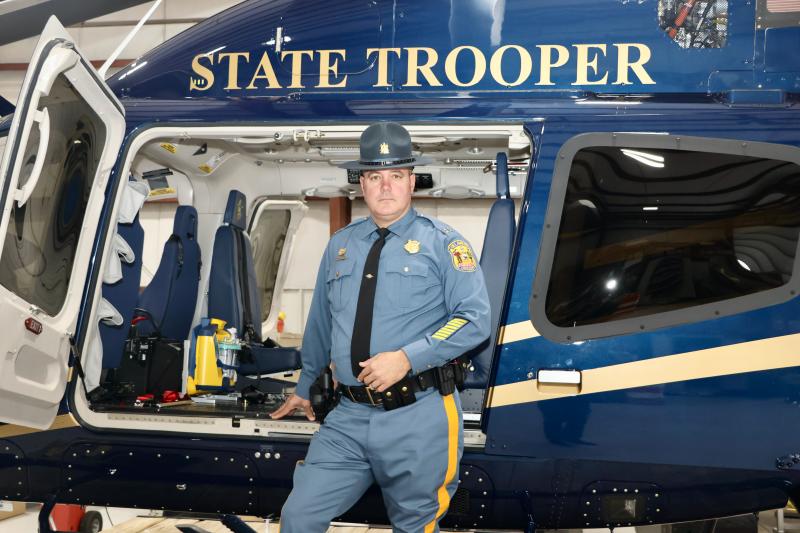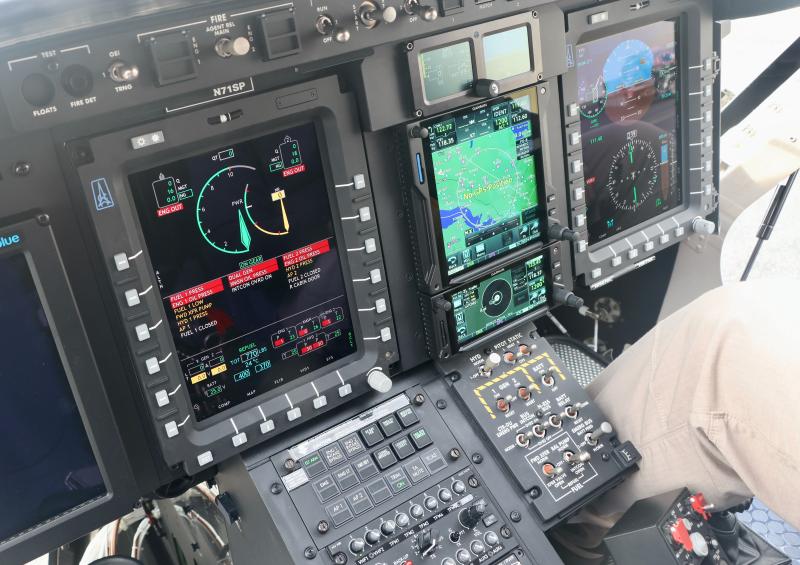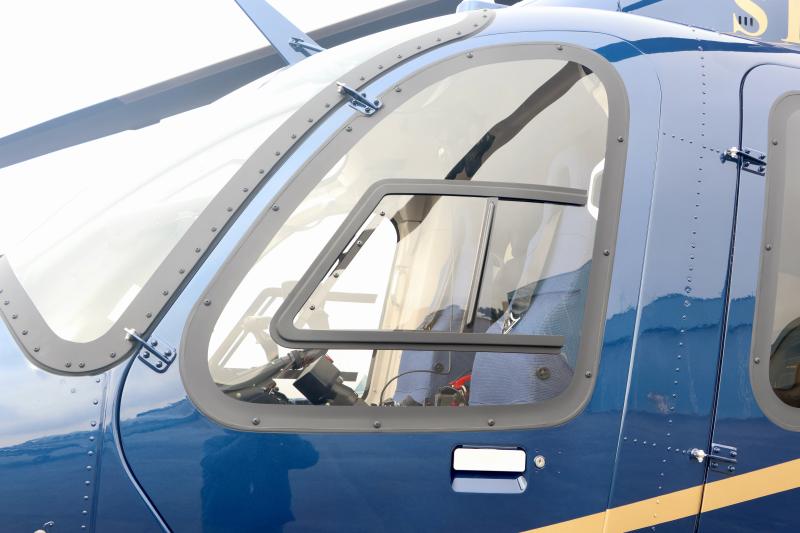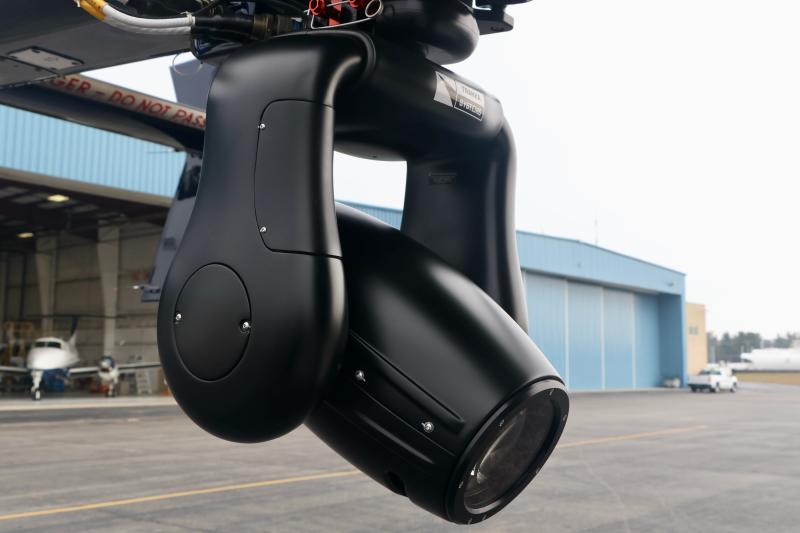Delaware State Police receive new helicopters
Delaware State Police have taken delivery of two new helicopters to better perform their missions of search-and-rescue, law enforcement and paramedic services.
The new Bell 429s will expand the DSP fleet and, for the first time, allow two aircraft to be based at Delaware Coastal Airport in Georgetown.
The Cape Gazette got an exclusive look at the new helicopters at the DSP hangar at Summit Airport in Middletown Dec. 10.
The helicopters are twin-engine Bell 429s, the same models with the same blue-and-gold paint scheme that have become familiar sights over Sussex County the last decade.
One of the aircraft will replace an older Bell 429. The second one will expand the fleet from three to four helicopters.
DSP also flies a fixed-wing Cessna used for training and surveillance.
Capt. Jeff Whitmarsh, commander of the DSP Aviation Section, said adding a fourth chopper is critical.
“We had one or two occasions last year where the aircraft were in for service and we had a significant issue with another aircraft, and we were waiting for parts to come in. So, having four allows us to maintain mission readiness, which is what the citizens of Delaware expect,” Whitmarsh said.
He said adding that second aircraft in Georgetown will really pay off come summer.
“We get a lot of search-and-rescue missions, people stranded in the bay and missing kayakers. The aircraft will go out and do search-and-rescue, all while transporting critically ill patients when a car crash occurs,” Whitmarsh said.
DSP was the first organization in the world to fly the Bell 429 for lifesaving missions and airborne law enforcement. Users have learned valuable lessons that led to some upgrades on the new aircraft, including an option found in many cars.
“The pilots said, ‘We can’t see behind us.’ So, we talked to Bell and we’re the first law enforcement unit in the world to have a rear-view camera. They get a 200-degree view behind them. It’s a small detail with a big impact,” Whitmarsh said.
Another important new addition is the mission step, a safety measure for paramedics who stand outside the aircraft. Until now, they had to walk a tightrope on the skid when lifting someone to safety.
“This new step provides better stability for paramedics who do the hoist work. It gives them more confidence on the aircraft. It’s a big deal for them. We want them to be safe and have proper equipment,” Whitmarsh said. He said the mission step will be installed on all four helicopters.
DSP has also learned what it did not need on the new aircraft, like plastic and paint in some places.
“We’re taking patients in and out, we have police officers getting out, you’ve got equipment. Those [parts] break and chip. So, it reduces wear and tear. It reduces weight on the aircraft. It also leads to better fuel efficiency,” Whitmarsh said.
The DSP Aviation Section has flown 526 patients to area trauma centers in 2024, a number that is expected to grow.
The new aircraft have state-of-the-art equipment for the paramedics, including updated heart monitors, advanced airway management devices, ventilators and infusion pumps.
Whitmarsh said Sussex County paramedics are now carrying whole blood. He said DSP have an agreement to fly blood to a scene when lives are on the line.
“If they have the inability to get blood to a scene because of time and distance, they’ll run over, put blood on the aircraft and we’ll fly it with our own paramedics to the scene,” Whitmarsh said. “We use coolers that were developed on the battlefield. We can monitor the temperature of the blood on our cellphones to keep it safe for patients.”
Sgt. Ted Stipa, DSP chief paramedic, said the gear gives their first responders peace of mind.
“The worst thing is when you can’t help somebody. You want to help everybody,” Stipa said. “That’s why we do this job. When you get to a scene, you see that traumatic injury, a medical emergency, whether it’s a kid or a grandmother, you do everything you can.”
Sgt. Bill White, DSP chief pilot, was happy to show off his office, which is the cockpit of the Bell 429.
The gauges and controls are similar to the older models. But, in another example of how the DSP’s Bell 429 experience led to changes, they found that turning knobs, instead of push buttons, are more user-friendly for pilots, because they wear gloves when they fly.
White, who also flew Army helicopters, said the Bell 429 is a great aircraft for the mission.
“It’s got a small footprint, it’s fast, we can carry one or two patients. It’s the perfect aircraft for what we do in the state of Delaware,” White said.
The tail numbers on the new aircraft are N2SP and N71SP.
N71SP is a tribute to the first DSP helicopter, also a Bell, that went into service in 1971. A replica is on display outside the DSP museum in Dover.
N2SP is the same number as the older ship that was retired.
Whitmarsh has been a state trooper for 27 years. He took over command of the DSP Aviation Section two years ago, although he does not have an aviation background.
“I have to listen because I just don’t know. So, versus someone with a lot of experience that may have a predisposition of ideas, it’s listening and asking that get things like this done,” he said. “Not everybody is doing that triad mission we talked about. We do all three. I think that makes us pretty special.”
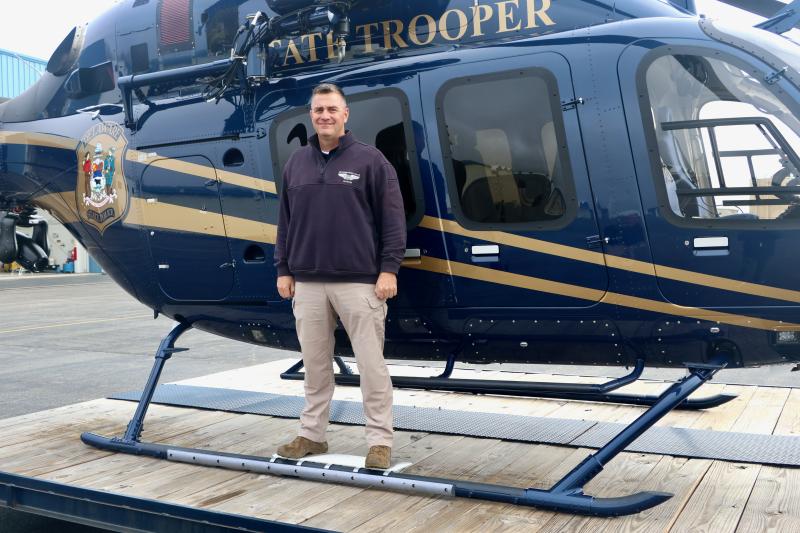
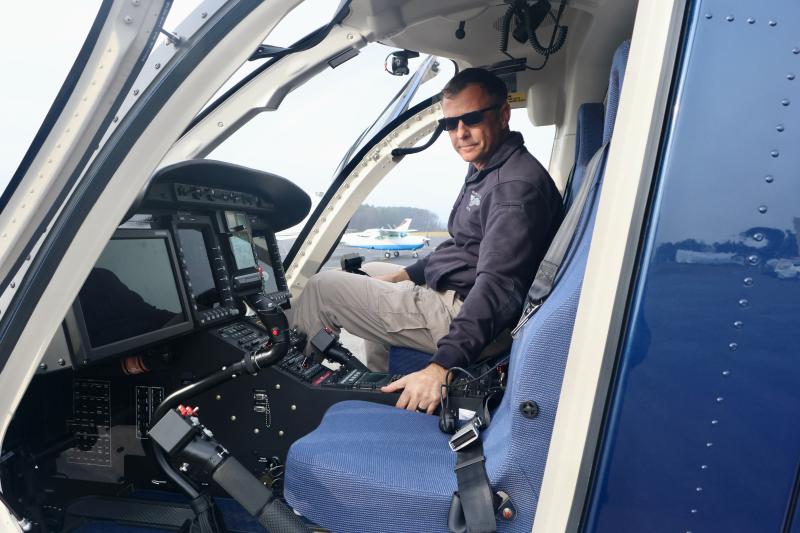
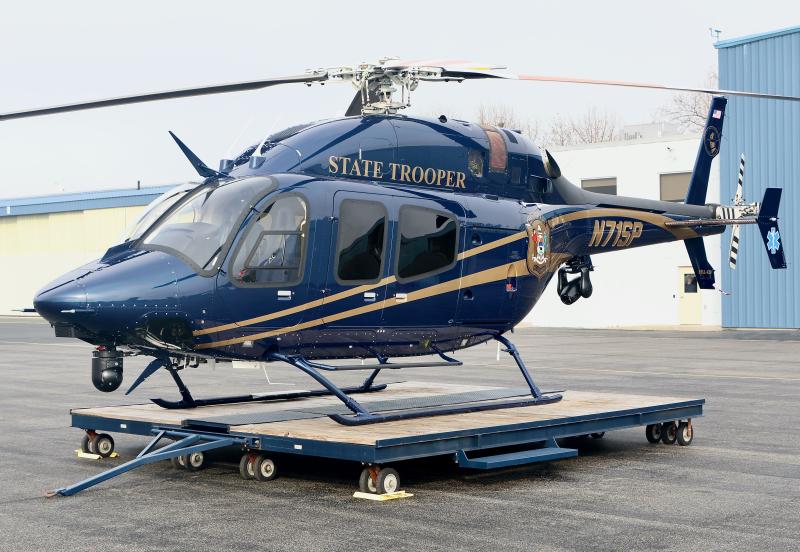
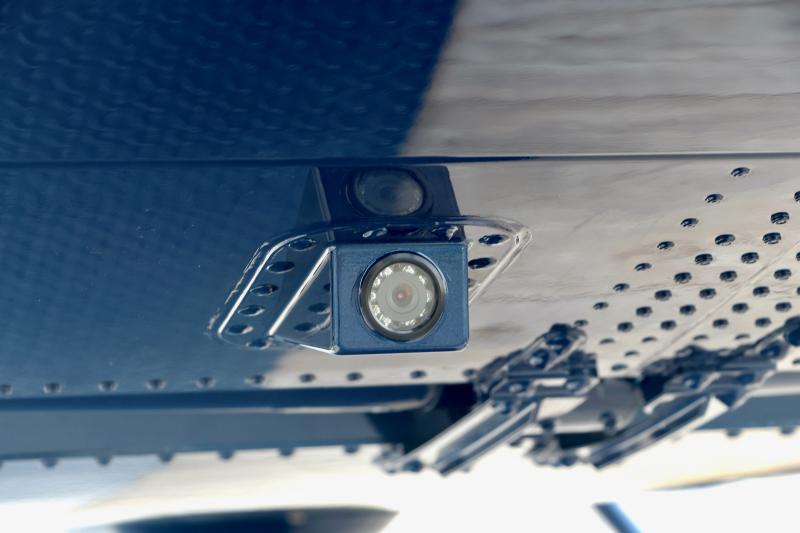
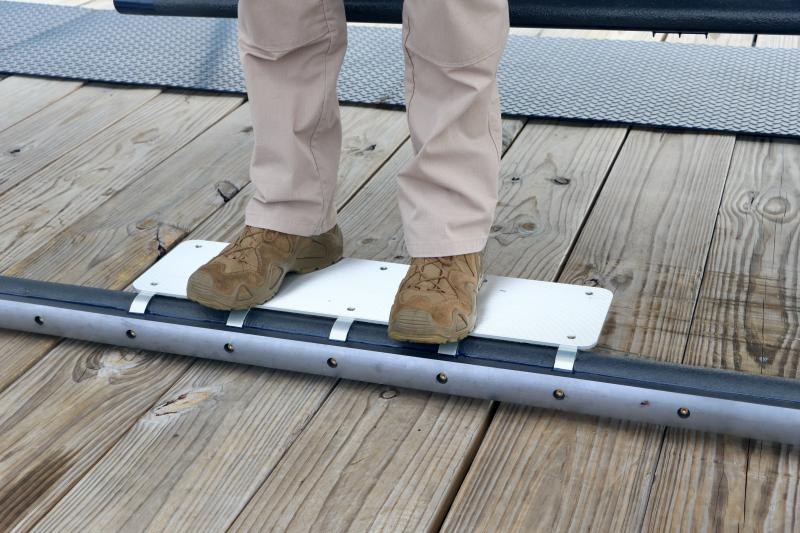
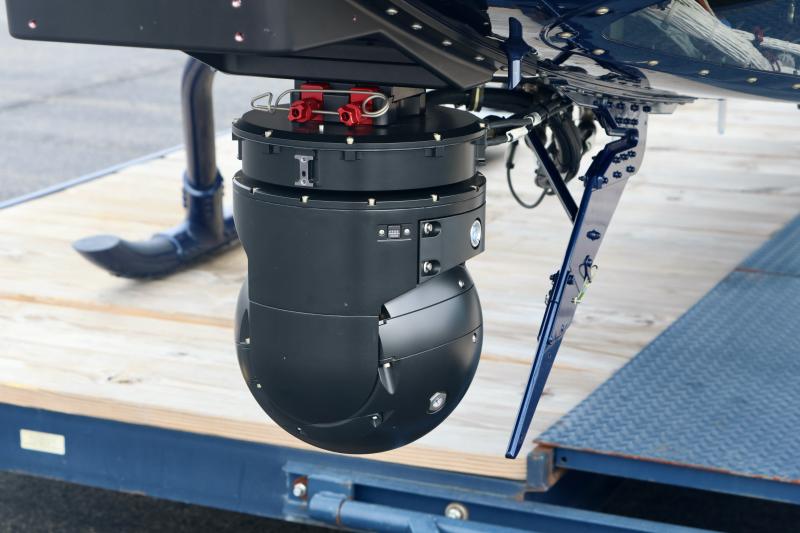
Bill Shull has been covering Lewes for the Cape Gazette since 2023. He comes to the world of print journalism after 40 years in TV news. Bill has worked in his hometown of Philadelphia, as well as Atlanta and Washington, D.C. He came to Lewes in 2014 to help launch WRDE-TV. Bill served as WRDE’s news director for more than eight years, working in Lewes and Milton. He is a 1986 graduate of Penn State University. Bill is an avid aviation and wildlife photographer, and a big Penn State football, Phillies and PGA Tour golf fan. Bill, his wife Jill and their rescue cat, Lucky, live in Rehoboth Beach.











